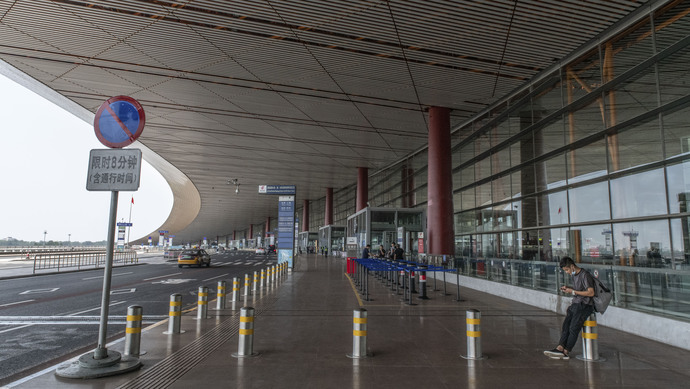
In addition to Beijing, flight cancellations at many airports across the country are also increasing.
On the evening of August 6, Beijing Capital Airport revealed that flights to Beijing from 14 cities in China had been cancelled. The 14 cities that cancelled flights to Beijing include Nanjing, Yangzhou, Huai’an, Zhangjiajie, Changde, Zhengzhou, Dehong, Yibin, Luzhou, Shenyang, Wuhu, Chengdu (Tianfu), Haikou and Jingzhou.
According to the reporter, these cities are mainly medium and high-risk cities after this round of epidemic.
The head of the capital airport said that in the next step, more strict control measures will be taken for flights to Beijing from relevant cities according to the epidemic development situation and the needs of epidemic prevention and control in various regions.
In fact, since August 1, Beijing has required to improve the control level of entering Beijing, strictly control the entry of personnel from medium and high-risk areas, restrict the entry of personnel from areas with cases, and suspend flights, trains and bus routes to Beijing. After many flights to Beijing have been cancelled one after another.
As of August 6, the daily average number of inbound and outbound passengers at Beijing Capital Airport and Daxing airport was less than half of that before the current round of local epidemic.
In addition to Beijing, flight cancellations at many airports across the country are also increasing.
According to the latest civil aviation operation data released by the flight steward, on August 5, the national civil aviation implemented 8018 flights, down 9.54% from the previous day, and the decline was further expanded. The National Flight implementation rate was 49.60%. Among the 30 million level airports, Shanghai Hongqiao Airport has the lowest flight cancellation rate of 35.50%. In addition to Nanjing Lukou Airport, the top three airports with cancellation rates are Zhengzhou Xinzheng, Changsha Huanghua and Xiamen Gaoqi.
On the previous day, Air China and HNA also successively issued the latest notice on their official websites, saying that according to the requirements of Beijing to further strengthen epidemic prevention and control measures, flights from medium and high-risk areas to Beijing from now on can go through the check-in formalities (including passengers transiting through Beijing) only with the negative certificate of nucleic acid test within 48 hours.
Today, more cities have followed up Beijing’s prevention and control requirements.
Among them, Guangzhou announced that from 6:00 a.m. on August 6, after arriving at Baiyun Airport, passengers from flights to Guangzhou in key areas in China will check the “Health Code” green code and body temperature test, and add the “negative certificate of nucleic acid test within 48 hours”. Passengers without nucleic acid certificate shall be subject to nucleic acid detection and sampling on site.
Haikou announced that from 6:00 on August 6, all passengers (including pick-up and seeing off personnel) entering the terminal of Haikou Meilan International Airport must show their health code, green code and valid nucleic acid negative certificate within 48 hours.
It is worth noting that this time is the summer transportation, and the annual spring transportation and summer transportation should be the peak season of airlines. At the beginning of the year, due to the serious domestic epidemic, people were called on to celebrate the new year locally, civil aviation encountered the “the coldest Spring Festival transportation in history”, and the domestic aviation department was almost wiped out and recorded a loss.
However, statistics from the Civil Aviation Administration show that in the first half of the year, national airlines significantly reduced its losses compared with the same period last year. The total turnover of the three central air transport enterprises in the first half of the year increased by 38.8%, passenger transport volume increased by 63.1%, cargo and mail transport volume increased by 25.2%, and the main business volume has recovered to more than 70% in the same period in 2019. In the first half of the year, the total operating revenue increased by nearly 30% year-on-year. Although the net profit was in a state of loss, it decreased by more than 15 billion over the same period of the previous year.
Now entering the summer transportation peak season, it was originally the best time for airlines to further reduce losses in the second half of the year. However, the impact of the epidemic ended the summer transportation peak season ahead of schedule, and the loss reduction road of civil aviation in the second half of the year became more bumpy.
Source: yicai.com

















